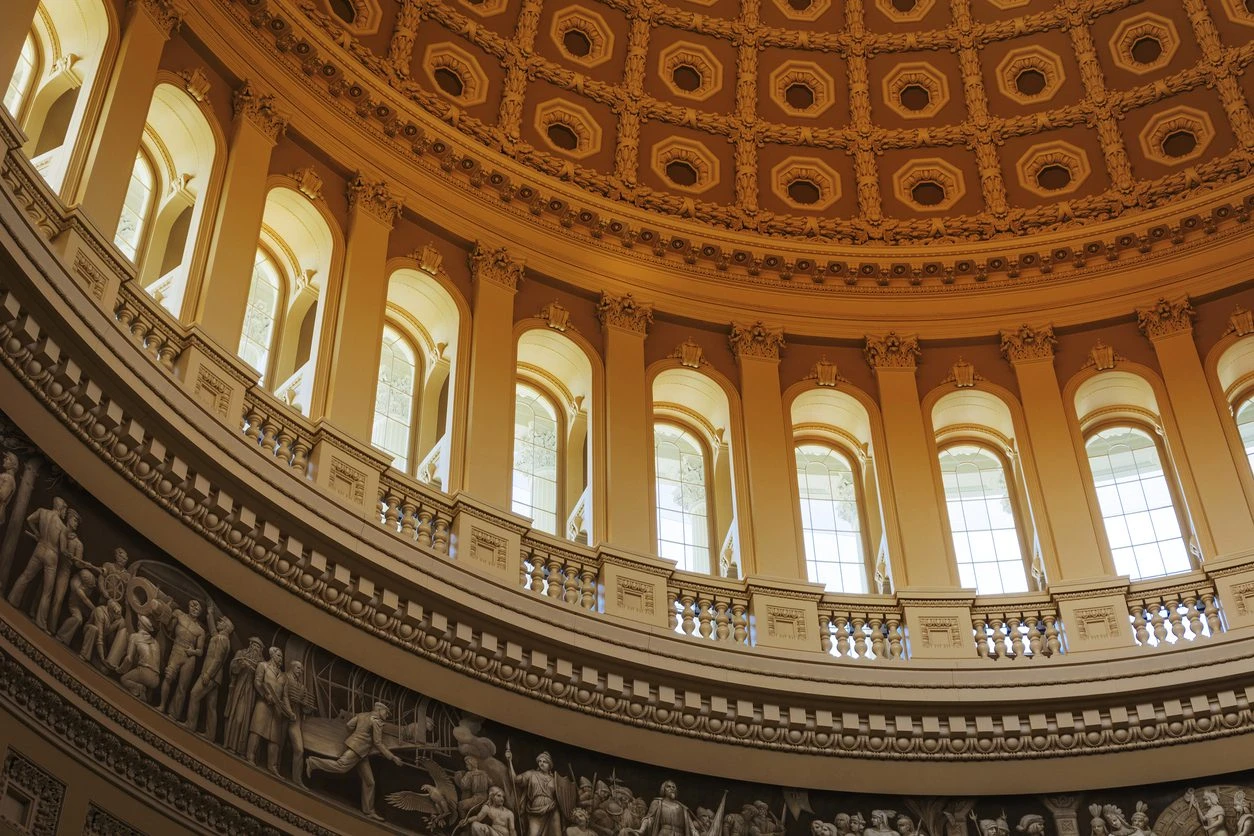Senators Schumer and Hatch file federal sports betting bill

Senators Chuck Schumer and Orrin Hatch have filed their long-awaited legislation to regulate sports betting across the US.
The Sports Wagering Market Integrity Act of 2018 has been filed following months of speculation and a discussion draft, which was circulated among Senators earlier this month. It aims to establish federal oversight of sports betting across the US, with the goal of pushing illegal operators out of the market.
It proposes a system under which US states must have their sports betting regulations approved by the Department of Justice. Each state would be required to submit an application setting out their proposed regulatory framework, as well as nominating a body to regulate the market.
Each state’s attorney general or chief legal officer would also be required to provide assurances that the proposals, to the best of their knowledge, would allow for effective oversight of the state’s sports betting market.
The US Attorney General would then have 180 days to assess and approve the plan, or reject it if they feel it does not set out a plan for effectively regulating the market. Upon approval, the regulations would be valid for three years, after which the states must apply for a renewal.
Applicants would have to adhere to a series of standards set out in the Senators’ bill. States would be permitted to offer in-person wagering and online wagering, either restricted to state borders or across borders as long as a compact with another jurisdiction has been established. These compacts must also be approved by the US Attorney General.
All states would have to use geolocation technology to ensure only customers located within approved borders can place wagers. Each state must also establish approved criteria for events on which wagers can be placed; all must be verifiable, generated by a reliable and independent process, and unlikely to be affected by betting.
The bill also prohibits wagering on amateur sports, with exceptions for the Olympic Games, Paralympic Games, Pan-American Games and certain intercollegiate sports. States would also have the power to give operators notice that they are unable to offer wagering on certain events.
In spite of all the talk of so-called integrity fees for the US professional sports leagues being included in the legislation, this appears to have been excised. However, the bill does mandate that all licensed sports betting operators must only use data provided either directly from the leagues, or authorised resellers, until December 31, 2024.
It sets out a number of social responsibility measures, such as controls regarding bonus terms and conditions, which must be made clear to all participants, while advertising must include responsible gambling information.
Each state that regulates sports betting would also be required to establish a self-exclusion database for players. This would feed into a national self-exclusion database, which would be administered by the National Sports Wagering Clearinghouse, a new non-profit organisation.
The National Sports Wagering Clearinghouse will also be responsible for upholding sports betting integrity, monitoring activity for suspicious transactions and gathering anonymised sports betting data. It would also work on ways of tackling gambling addiction.
The body would be funded via a federal excise tax on sports betting handle that has been in place since 1982 and, according to the bill, would be 0.25% of handle. This is estimated to bring in around $12m a year, with this sum set to rise as more states pass regulations.
The funds raised from this excise tax will be deposited into the Wagering Trust Fund, with $3m to be used to fund the Clearinghouse, and $5m for the monitoring and treatment of gambling addiction.
At the time of writing, the Sports Wagering Market Integrity Act of 2018 is yet to be assigned an official number or assigned to committee.
“This bill is the first step toward ensuring that sports betting is done right in the states that choose to legalize it,” Hatch commented. “Just as importantly, it provides protections for states that choose not to go down that path. For the better part of this year, I have engaged with and learned from stakeholders on all sides of this issue – the gaming industry, professional and amateur sports leagues, consumer advocates, data providers, law enforcement, and many others. The result of those discussions is a comprehensive bill that tackles numerous, complex issues and includes provisions to protect the interests of each of those stakeholders.”
Schumer added that he felt Congress had an obligation to act following the repeal of PASPA to ensure the integrity of sports was not compromised.
“That is why I believe the time is now to establish a strong national integrity standard for sports betting that will protect consumers and the games themselves from corruption,” he explained. “The bipartisan legislation that Senator Hatch and I have introduced, follows the principles laid out in the federal framework that I released in August and will serve as solid foundation upon which we build the appropriate guardrails around the burgeoning sports betting industry.
“I will strongly advocate for this bill to move forward and for Congress to vote to pass federal legislation very soon.”
